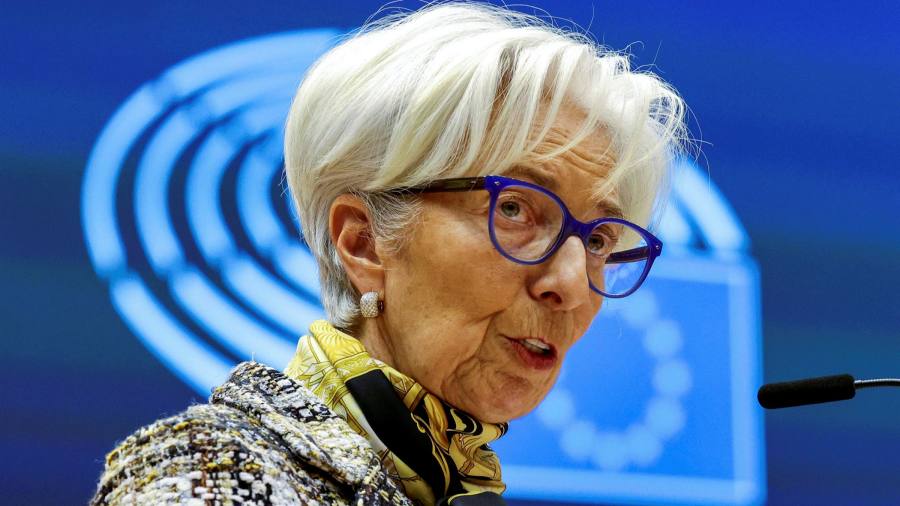[ad_1]
The European Central Bank has stepped up the weekly pace of its emergency bond-buying programme to its highest level for over three months in an attempt to counter the recent sell-off in eurozone debt markets.
The ECB bought €21.1bn of bonds under its pandemic emergency purchase programme (Pepp) in the week to March 17 — up from €14bn a week earlier and above the €18bn weekly average since the programme started last year, data released on Monday showed.
The acceleration of bond-buying by the ECB was widely expected after the central bank announced this month that purchases under it €1.85tn scheme would be “conducted at a significantly higher pace†in the coming three months.
The recent sell-off in bond markets has spread to the eurozone from the US, where it is being fuelled by expectations that a sharp economic recovery will reignite inflation that eats into fixed interest payments on bonds and potentially even brings forward a rise in interest rates.Â
But the eurozone economy is still weighed down by restrictions to contain the coronavirus pandemic, so its growth and inflation are recovering more slowly than in the US, leading ECB policymakers to warn that the steepening of yield curves was unjustified.
Christine Lagarde, ECB president, said in a blog post on Monday that the central bank could adjust the pace of Pepp purchases “at any point in time in response to potential changes in market conditions†to achieve its goal of maintaining “favourable financing conditionsâ€.Â
She said the central bank would measure its progress using “a joint test that appraises the prevailing financing conditions against the euro area’s economic and inflation outlookâ€. It has €900bn of capacity left under Pepp, its main crisis-fighting tool, which is due to run until at least March 2022.
But Klaas Knot, head of the Dutch central bank and ECB governing council member, indicated Pepp could be wound up earlier than expected if the pandemic was contained quickly and the economy rebounded strongly. “If we make good progress with vaccinations, that moment will come somewhere later this year,†Knot said.
Peter Schaffrik, RBC Capital Markets global macro strategist, said: “Whilst it seems clear that the ECB is able to make European fixed-income markets outperform versus, say, the US and the UK, it is less clear whether they can stand in the way of higher bond yields in general.â€
The benchmark German 10-year Bund yield last week hit its highest level since late February at around minus 0.25 per cent as a global sell-off sent US 10-year Treasury yields to a 14-month high above 1.75 per cent.Â
The gap between US and German 10-year yields has widened beyond 2 percentage points for the first time since February 2020 as American bonds weakened more than German peers.Â
Still, Schaffrik said the ECB could already “feel vindicated†after real yields, adjusted for inflation, remained “well anchored†on eurozone sovereign bonds and returned close to record lows after the central bank’s last meeting two weeks ago.
Analysts noted that the ECB has taken a different tack to its peers, as the US Federal Reserve and the Bank of England have not joined it in pushing back against rising yields.Â
“The ECB, as the one central bank to have pledged to actively counter the rise in bond yields, is left in a pickle,†ING analysts said.
Markets were largely unmoved following Monday’s announcement. Italian 10-year bond yields edged down by 0.01 percentage points to 0.659 per cent. German 10-year Bund yields were steady at around minus 0.3 per cent. Yields fall as prices rise.
[ad_2]
Source link





